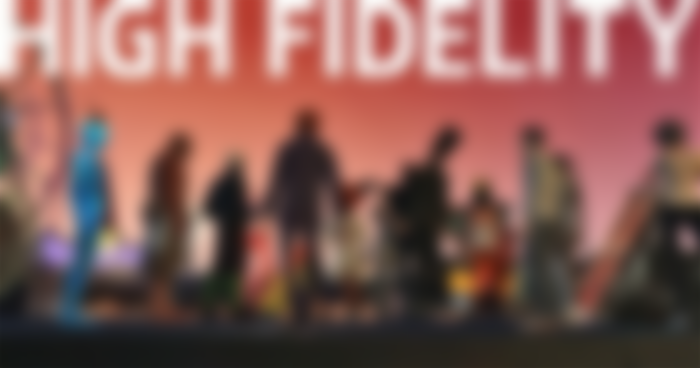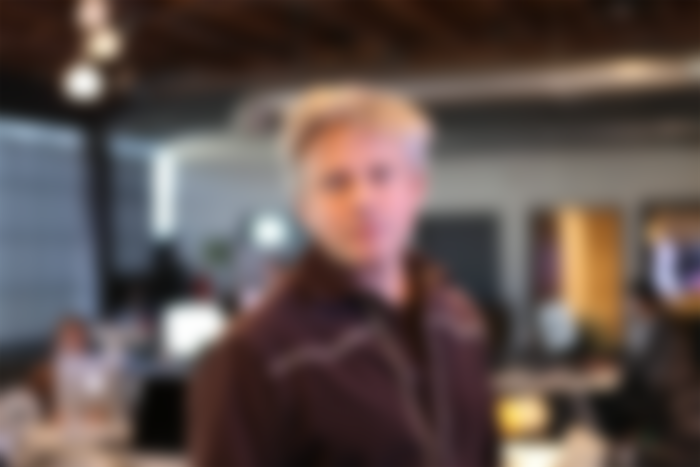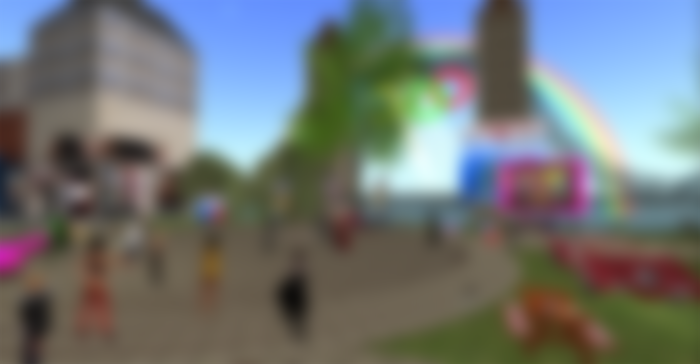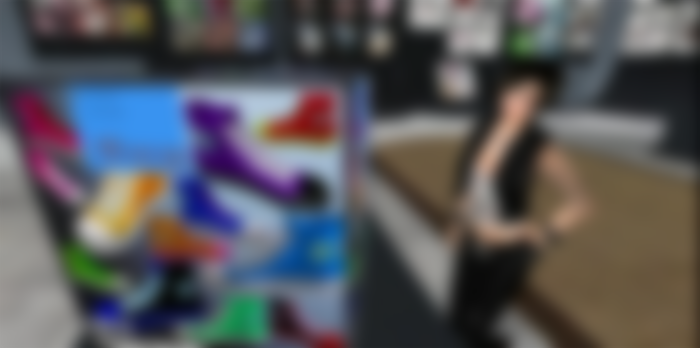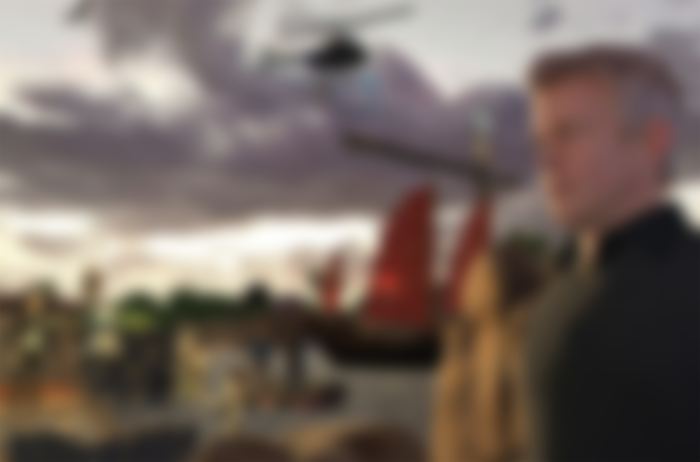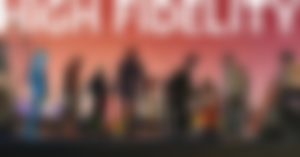
A pioneer of virtual worlds since the early 2000s and the creation of Second Life, the American Philip Rosedale is back today, at 48, with a new project called High Fidelity. This time, it is certain: we will be able to leave the real world for ever more intense virtual immersions. Meeting in San Francisco with an entrepreneur convinced that the Earth will soon be nothing more than a museum.
One day in November 2011, Philip Rosedale had a vision. One more. On the Internet, he has just bought for a few tens of euros an electronic chip that can measure movement and rotation, of those commonly found in smartphones today. Enthusiastic, he assembled his small team in the premises of Coffee & Power, his latest start-up, created just a year earlier. In front of the audience, he connects the chip to an oscilloscope and waves it frantically in the air. On the small monochrome screen of the device, curves emerge. The looks, them, are rather dumbfounded. " What are you doing ? » Dares a colleague. "We are going to close our box and relaunch in virtual worlds"Philip answers tit for tat. A few months later, Coffee & Power is already history. High Fidelity, his new company, is afloat. Its mission: to pursue the dream that has lived in its founder for decades. That of creating a virtual world.
"Create whole worlds"
We are on Folsom Street, in the SoMa (South of Market) district of San Francisco. This southern part of the Californian city has become, in recent years, a stronghold of tech, no offense to its historic inhabitants, impoverished and driven out by the sudden gentrification. Symbol - perhaps unconscious - of this seizure of power, it is necessary to look up to locate the premises of High Fidelity.
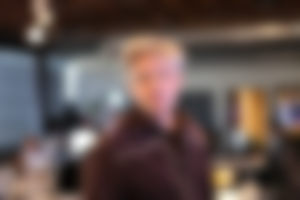
On the facade of an old warehouse flies a company flag, clawed with its enigmatic logo: an "H" formed by printed circuit connections. You have to show your white paw in front of a camera, then push open a heavy black door that would fit perfectly in a swinger club, an underground club or a secret society. We then take a narrow staircase. On the first floor, on a large plateau, in a pale geek light, computers lined up and busy engineers. Officially launched in beta, High Fidelity already has several thousand users. Suffice to say that there is work to be done. In a corner of the open space, standing, virtual reality headset screwed to his head, a member of the team waves his arms in the air and shakes his head in all directions. He works, no doubt. Vision,
"When, as a teenager, I had my first computer, I was immediately convinced that we would be able to create entire worlds with that"
Philip Rosedale has always been obsessed with getting away from it all and creating new worlds. This is what he tells calmly, by way of introduction, in a small adjacent room, dedicated to demos and equipped with all the virtual reality paraphernalia, with sensors on the walls and an HTC headset placed on a table. “When, as a teenager, I got my first computer, I was immediately fascinated by code, mathematical representations, fractals that could be explored, this whole universe of data. I thought we were going to be able to create whole worlds with that, I was immediately convinced, ” explains the boss of High Fidelity, smiling, legs crossed and eyes intense blue.
Philip Rosedale was born in San Diego in 1968 to an English teacher mother and a Navy pilot father. At the age of 13, he has already crisscrossed the United States and Canada, depending on the mutations of his father. Shy boy, a little uprooted, keen on electronics and science fiction - he read very early the prophetic Snow Crash and Neuromancer (written respectively by Neal Stephenson and William Gibson, editor's note) bibles of the siliconians - he discovers with passion the arrival of computers. At 16, he set up his first start-up. In his twenties, he's a millionaire and ranked by Wired magazineamong the 100 most influential people on the planet. A flawless course. Almost too smooth. Emblematic, in any case, of the flamboyant success stories of Silicon Valley. Philip Rosedale seems moreover here like a fish in water, speaking in a relaxed atmosphere of his “friends” Elon Musk and Mark Zuckerberg…
In 1994, Philip Rosedale moved to San Francisco, having successfully launched his first software company. “That's when I discovered the Internet and it's a revelation ,” he says. Millions of machines will be able to connect to each other: I immediately imagined the computing power that this would generate, the extent of the worlds that we would be able to create with that. The only problem is that at the time the connection was still slow, by modem, and that we did very little 3D on the PC, it was still quite complicated. Virtual worlds already existed, but it was not very stimulating, the time had not yet come. » So Rosedale puts himself « on hold », aware that his desire will soon be technically possible. At the same time, the democratization of the Internet opens up many other perspectives. To be patient, the entrepreneur is interested in the online distribution of videos, streaming, a field that whets the appetites of many companies and investors. He designed FreeVue, an online video calling system, soon to be sold at a gold price to RealNetworks, of which he later became the CTO (CTO) until 1999. “During this period, I have Chomped at the bit, I was in the starting blocks. "
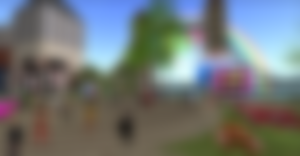
"That people have a real life"
At the turn of the 2000s, everything accelerated. For two reasons. On the one hand, broadband connections are emerging. On the other hand, the first graphics cards capable of correctly handling three-dimensional images are spreading. “At the time, I bought one of these cards, a Gforce2, and after work I started working on 3D models of lakes, aquatic surfaces, with their reflections and eddies, to see how it could be realistic. I was quickly satisfied and quit RealNetworks. "
“At the beginning, the world of Second Life was very small; today it's about the size of Los Angeles and has a million users! "
He then moved to Linden Street in San Francisco and created the Linden Lab. “Andrew, who you can see over there ,” he says, “ was my very first partner and he's still here. We were together at the physics school… ” Rosedale's ambition was to create a virtual world ex nihilo , virgin, to invest and inhabit, through the intermediary of an avatar, a small 3D character. He chooses to baptize his project Second Life. “It took us years to realize this idea, it was really not easy ,” he emphasizes on several occasions.We had to design tools so that people could make things themselves in Second Life. We had to think about means of communication between users, manage land, Second Life plots… We built our own virtual currency, a bit like bitcoin, so that people could trade or sell things. We wanted them to have a real life. At first, the world of Second Life was very small; today it's about the size of Los Angeles and has a million users! "
Screenshot of the Second Life universe.
In the mid-2000s, success was finally there: “We have reached our peak of users. Everyone was just talking about it, ” Rosedale recalls. BusinessWeekand dozens of other titles make their covers with the universe of Second Life. Big brands, such as American Apparel, Ford or IBM, invest the premises and open virtual stores. Harvard and Stanford teach there. Artists give concerts or organize exhibitions there. Virtual campaign offices were even installed there during the French presidential election in 2007. Second Life is well and truly inhabited and saves money for the Linden Lab, thanks to an ingenious tax on plots in this new world (20 euros per month for a virtual hectare) and on exchanges between members. Philip Rosedale's dream begins to come true:“Before launching Second Life, I really thought we were going to create a new world, huge, to invest, where we could share resources, exchange and sell things. And that really was the case, ” he points out, satisfied.
"Better than the real world"
Part of his inspiration for the Second Life universe, Philip Rosedale comes from his visit to the Burning Man festival, this pagan high mass organized each year in the Nevada desert. “When I went there for the first time, in 1999, I saw this virgin expanse, on which people came to create works, installations, freeing themselves from rules and conventions, sometimes including gravity, by making monumental pieces. The festival-goers changed their usual behavior, got to know each other, were extremely social and caring. It was exactly what I wanted to do. "

The Burning Man Festival, in Black Rock City. Credit: Gabriel Jeffrey
Second Life is intended to reflect this social utopia: "a world with fewer rules, laws and governance" , in the words of Philip Rosedale. A libertarian vision shared by many entrepreneurs in the Valley, always quick to decry the legal and administrative burdens slowing down their great march towards progress. “I imagined it all to be pretty wild, actually, very creative and artistic ,” he explains.Part of it was, but people first made real-life dreams come true in Second Life: we saw a bunch of amazing houses and villas, with palm trees and swimming pools, and a lot of buildings like the ones. of the real world. Overall, if we want to summarize, users first built a Ferrari before building a spaceship. "
“We often hear that virtual worlds will make us stupid, autistic, separate us. In fact, they make us better. They are better than the world we live in ”
Behind the metaphor, we feel a hint of disappointment in Philip Rosedale's work. But her conviction remains intact. This is also one of the most striking aspects of this character: this sort of belief, both firm and Zen, in the inevitable advent of virtual worlds with indisputable virtues. In the heyday of Second Life, he claimed his world was "better than the real world . " Today, he has not lost any of his certainties: "Second Life has clearly had a positive effect on people, for me it is obvious ," he says without batting an eyelid.It helped them to find work, to discover vocations, to fall in love. Some people have changed jobs in real life, others got married… We often hear that virtual worlds will make us stupid, autistic, and separate us. In fact, they make us better. They are better than the world we live in. Second Life has removed all prejudices related to gender, age, ethnicity or location. "

Like Converse, dozens of brands entered the Second Life universe in the early 2000s.
However, even if Second Life continues to survive today, the bellows quickly fell. Once the hype passed , brands and users began to desert. In 2009, Rosedale left the company he founded. “She had put on a lot of weight, very quickly, and I didn't know if I was the right person to lead her. I was washed out , he says. I am an inventor, an engineer, a programmer. I like to do things, to build things. I may be less good at being a chef, a manager. "
Second Life is above all reaching its limits. The result, in terms of graphics and emotions, does not live up to its promises. Investing in this new territory, alone in front of your screen, simply equipped with a keyboard and a mouse, is a long learning process and requires a good dose of self-sacrifice.
"The Earth will be a museum"
This is how Philip Rosedale found himself, in 2011, in the premises of Coffee & Power, the start-up with which he intended to disrupt the job market. With its electronic chip and its oscilloscope. “Since leaving Linden Lab, I was in observation, in reflection. Not for a moment did I give up on the idea of giving a sequel to Second Life and reinvesting in virtual worlds. "The trigger is once again a technological leap. The chip that Rosedale is then holding in his hand will soon equip all virtual reality headsets. The arrival of this type of equipment - Oculus Rift and other HTC Vives - added to the reduction in latency on the Net, this delay between sending and receiving a packet on the network, changes everything. This time, it is still a question of going upmarket. Spatialized sound for more realism, deeper immersion thanks to helmets, polished graphics… Such is the promise of High Fidelity. Rosedale can't resist showing us her avatar on the cover of Wired magazine . “Look, it's pretty similar. I have a scar in the palm of my hand, and my avatar too… ”
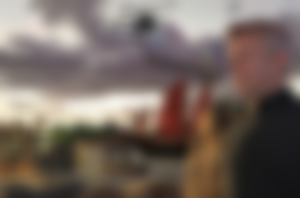
The avatar of Philipe Rosedale in the universe of High Fidelity. / Credit: High Fidelity
The entrepreneur is back with a tight team - only around thirty employees - but with tenfold ambitions. “High Fidelity is not a business, it is the Internet. This is the future of the Internet! »He launches the hussar, convinced that“In ten years, billions of people will be using virtual worlds like High Fidelity. Smartphones arrived in 2007 and it took about seven years to reach one billion users. It will be the same, simply because the benefits will be immense. We will no longer have to travel to go to meetings, we will no longer need to make grueling business trips, we will be able to study directly in virtual worlds, we will be able to find love there and make a lot of news there. experiences. "
“We're going to see virtual worlds replace the real world. The Earth will be a kind of museum, curious, very beautiful, loaded with memories, but the only reason we will be going back there will be to be a couple ”
Rosedale's vision is as clear as it is disturbing. According to him, we will inevitably come to leave the real world, to desert it, and only find it when we need physical contact: "We are going to see virtual worlds replace the real world, that's for sure . he. We will live and work in virtual worlds. Earth will be a kind of museum, curious, very beautiful, loaded with memories, but the only reason we will be going back will be to be as a couple. I am very optimistic but I am a physicist, and I doubt that in the short term we can replace touch and smell. The next twenty years will be mostly visual and sound. "
For Philip Rosedale, any reluctance to face this prospect borders on a simple fear of the unknown. There is something absolute about his vision. And it is this certainty, shared by a good number of players investing in virtual worlds, like Facebook, which leaves a little doubtful. As if the road was already cleared, and that we had no say.
